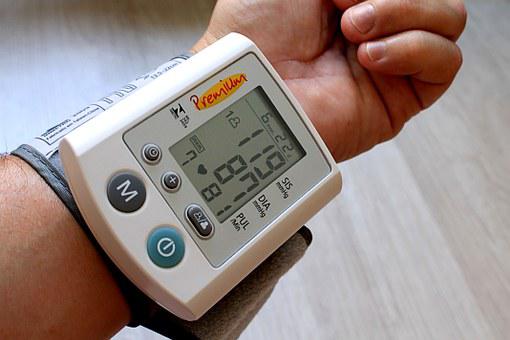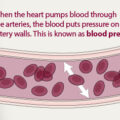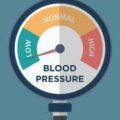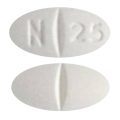Who is affected by high blood pressure?
Approximately 1 in 3, more than 100 million, American adults have high blood pressure. But only half of those people have their condition under control. Many people develop high blood pressure when they are in their late 30s or early 40s, and it occurs more frequently as people age. However, because of the obesity epidemic, more and more children are also developing high blood pressure.
What is high blood pressure?
Blood pressure is defined as the force of blood pushing against the walls of the arteries as the heart pumps blood. High blood pressure – also known as hypertension – is a disease in which blood flows through blood vessels (arteries) at a higher than normal pressure.
Blood pressure is measured with two numbers. The first, or top number, is the pressure in your blood vessels when your heart beats, called the systolic pressure. Systolic pressure is the higher of the two numbers. The second, or bottom number, measures the force of blood in your arteries while your heart is relaxed between beats. The bottom number is the lower of the two and is called the diastolic pressure.
Normal pressure is 120/80 or lower. Your blood pressure is considered high (stage 1) if it reads 130/80. Stage 2 high blood pressure is 140/90 or higher. If you get a blood pressure reading of 180/110 or higher more than once, seek medical treatment right away. A reading this high is considered a “hypertensive crisis.”
Readings between 120/80 and 129/89 are considered pre-hypertension. People with pre-hypertension do not have blood pressure as low as it should be but are not yet considered to have high blood pressure.
Why is it important to know if you have high blood pressure?
Early detection of high blood pressure is very important. Often referred to as the “silent killer” because it may show no symptoms, high blood pressure puts you at an increased risk for heart disease, heart failure, and stroke, among other things. According to the Centers for Disease Control and Prevention, in 2013, more than 360,000 deaths in the United States included high blood pressure as a primary or contributing cause.
How can you manage your high blood pressure?
Treatment of high blood pressure often starts with lifestyle changes, including decreasing salt in your diet, losing weight if necessary, stopping smoking, cutting down on alcohol use, and regular exercise.
In addition to lifestyle changes, medications are often used to lower blood pressure. There are several types of medications that treat high blood pressure with each type of medication having benefits and risks that should be carefully weighed by you and your health care provider. Most people take more than one medication in order to bring their blood pressure down to their treatment goal.
Your blood pressure medication should begin to work within days. However, because high blood pressure is a long-lasting medical condition that often has little or no symptoms, remembering to take your medications can be a challenge. Combination medicines, long-acting or once-a-day medications, may be used to decrease the burden of taking numerous medications and help ensure medications are regular. Once started, the medication should be used until your doctor tells you to stop.
| Types of High Blood pressure medicine | Mechanism of Action |
|---|---|
| Angiotensin-Converting Enzyme Inhibitors | decrease certain chemicals that tighten the blood vessels, so blood flows more smoothly and the heart can pump blood more efficiently. |
| Beta-Blockers | relax blood vessels and slow the heart rate to improve blood flow and decrease blood pressure. |
| Calcium Channel Blockers | relax the blood vessels so that the heart does not have to pump as hard. |
| Peripherally Acting Alpha-Adrenergic Blockers | relax the blood vessels so that blood can flow more easily through the body. |
| Angiotension II Receptor Blockers | block the action of certain natural substances that tighten the blood vessels, allowing the blood to flow more smoothly and the heart to pump more efficiently. |
| Vasodilators | relax the blood vessels so that blood can flow more easily through the body. |
| Centrally Acting Alpha Adrenergics | decrease the heart rate and relax the blood vessels so that blood can flow more easily through the body. |
| Renin Inhibitors | decrease certain natural chemicals that tighten the blood vessels so that blood vessels relax and the heart can pump blood more efficiently. |
| Diuretics (sometimes called “water pills”) | works in the kidneys to rid the body of unneeded water and salt in the urine. |
| Combination Medicines | combine two (or more) different kinds of approved blood pressure medicines into a single dose. |
Controlling your blood pressure should be part of a healthy living plan and a lifelong task. The damage that high blood pressure causes your internal organs do not cause any symptoms until serious damage has been done.
By taking charge of your health, you can help control the silent killer. It’s all about knowing who, what, why, and how!






